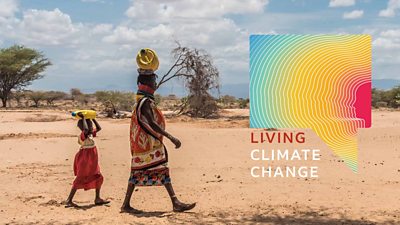Increasing temperatures, particularly in big cities like Dhaka, the capital of Bangladesh, have profound effects on human health. Nazma Begum, who lives in a slum in Dhaka, described the impact of working 14 hours a day in an overheated garment factory, while others suffer from skin conditions and heatstroke.
Watch the series
-
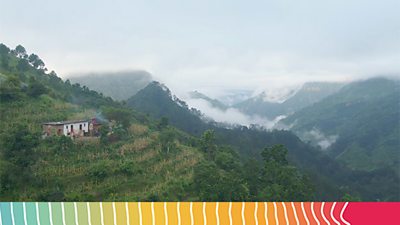
Mosquitoes in the mountains, Nepal
Mosquitoes and mosquito-borne diseases like malaria used to be confined to low-lying areas of Nepal. But in the last three years, there have been over 900 cases of malaria in the mountain regions. Parbati Bhat, who has been a community health volunteer for 38 years, says treating malaria cases has now become a new part of her role. -

The flood that took everything, Kenya
The consequences of extreme and unpredictable weather conditions can take a severe toll on mental health, as well as physical health. Pastoralist Lomilio Ewoi Erot lost his livelihood when his herd of hundreds of goats was swept away in a flood; he speaks of his struggles with mental health after becoming unable to provide for his family. -
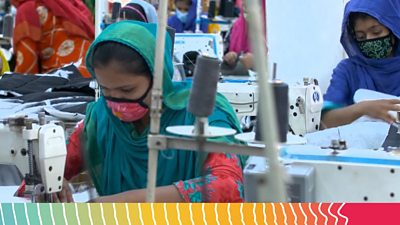
Feeling the heat, Bangladesh
Increasing temperatures, particularly in big cities like Dhaka, the capital of Bangladesh, have profound effects on human health. Nazma Begum, who lives in a slum in Dhaka, described the impact of working 14 hours a day in an overheated garment factory, while others suffer from skin conditions and heatstroke. -
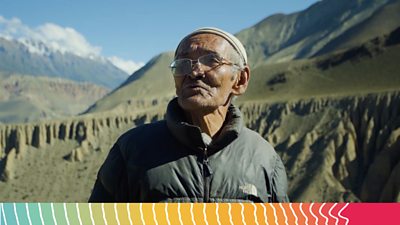
When snow becomes rain, Nepal
Climate change is destabilising food production in many parts of the world. Angyel Jung Bista, an apple farmer in the village of Kabgeni in Nepal, struggles to grow apples as warmer weather, heavy rainfall and floods pollute the water, prevent apples from growing, and contribute to the spread of waterborne diseases. -

The long walk to water, Kenya
Pregnant Kenyan mother Esther Elaar walks over two hours a day to get to a water source, then carries a heavy, 20-litre jerrycan all the way home again. Prolonged droughts and changing weather patterns driven by climate change have made everyday life an increasing struggle for people in northern Kenya. Women in the region have noticed an increase in miscarriages and stillbirths which they attribute to the extreme conditions. -
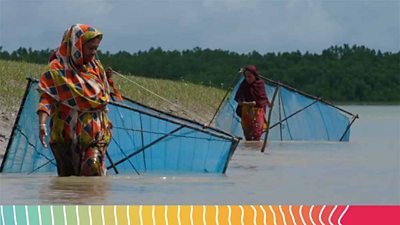
Salt in the water, Bangladesh
In coastal regions in Bangladesh, increased levels of salt in fresh water are contributing to reproductive health problems and cardiovascular diseases. Shabjan Begum, who lives in a fishing village on the southern coast reliant on the saline water for food, water and fishing, knows these health risks first-hand, through her own experience and that of her family and neighbours.
Behind the scenes
Read more from our teams about their experiences capturing stories at the frontlines of climate change
-
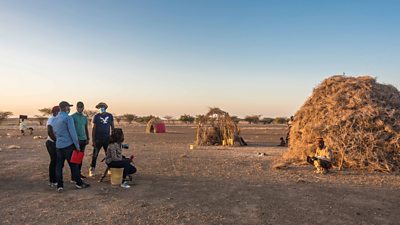
Behind the scenes in Kenya
Our project director Diana Njeru shares her reflections on extreme heat and drought, and their impacts on health, in northern Kenya. -

Behind the scenes in Nepal
Our communications manager, Om Rai, reflects on the journeys to meet Angyel Bista and Parbati Bhat. -
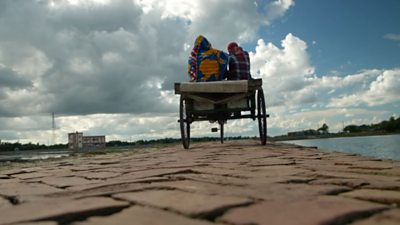
Behind the scenes in Bangladesh
Film producer Polash Rosul and Head of Production Bishawjit Das share the storygathering process behind our Living Climate Change series in Bangladesh.
